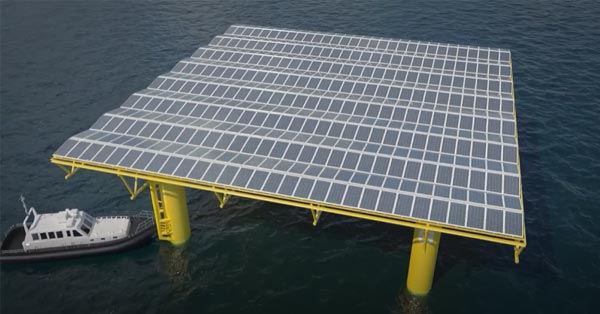Belgium-based partners Tractebel, DEME and Jan De Nul recently introduced their patented SEAVOLT offshore floating PV technology.
This technology is the result of joint research and development by the partners and Ghent University in the context of the VLAIO-funded research project MPVAQUA (Marine PV Aquaculture) of the Agency for Innovation and Entrepreneurship of the Flemish government, in the context of Blue cluster.
SEAVOLT arises from the growing land scarcity for solar energy deployment, combined with the desire for local production without remote transmission and the need for a rapid acceleration of the energy transition.
In recent years, the complementarity between wind and solar technology has been confirmed worldwide. This results in an increasing number of authorities granting multi-use concessions, leading to extensive assessments of technical and environmental site data at many potential offshore wind sites. Meanwhile, the network infrastructure also shows good potential for combined use.
“Just as we have seen wind technology evolve from land to sea, we are seeing the expansion of the entire energy system to offshore locations,” says Philippe Van Troeye, CEO of Tractebel.
“Together with offshore green fuel production, offshore energy islands and interconnectors and potential energy storage solutions, we believe offshore floating PV can play an important role in accelerating the energy transition.”
SEAVOLT’s floating PV technology can withstand harsh offshore conditions while creating large surfaces that are protected from the waves. It uses a modular design that easily adapts to different locations and project requirements. As a whole, it enables local energy production and the ability to install panels in offshore wind farms, adding large amounts of renewable energy in a relatively short time.
A marine float concept has already been developed, together with an initial study on the effects on the marine ecosystem, the integration of aquaculture and a financial assessment. After laboratory tests, the partners are developing an offshore test installation that will be launched this summer off the Belgian coast. In addition, parallel studies are underway focusing on the ecosystem, environment and cost-effectiveness.


